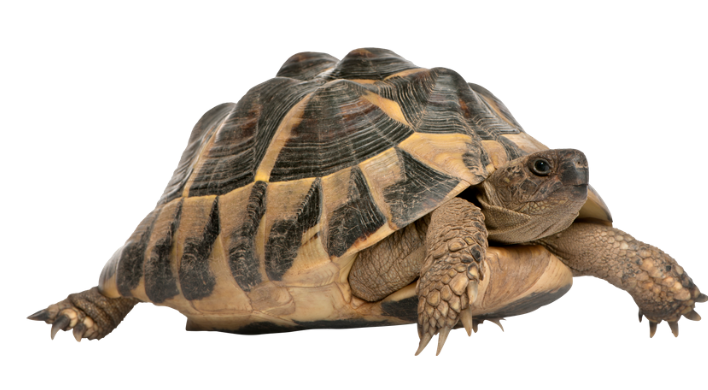We live in an age of declining disruption, claims a new paper published a few weeks after ChatGPT was released. The biggest risk you can imagine is implicit in the conclusions.
If we allow ourselves to get seduced by the narratives the rate of innovation is slowing, we won't be prepared for what is to come, and you will be able to say 'goodbye humanity," in the time it takes ChatGPT to tell us that two plus two equals four.
Ideas build on existing ideas — this is always and everywhere true. But some ideas seem to break the mould; they can make previous findings obsolete — this is where disruption enters the story. Just as the iPhone disrupted the mobile phone market, ideas, such as the discovery of the double helix in DNA, can disrupt previous academic thinking. And we need disruption — sure, we need ideas that consolidate that which was already known, but we need breakthroughs too.
The authors of a new study put it this way: "A healthy scientific ecosystem is one where there's a mix of disruptive discoveries and consolidating improvements."
But there's a problem. According to the study produced by Management Associate Professor Russell Funk, doctoral student Michael Park and Professor Erin Leahey of the University of Arizona, the rate of disruption is slowing.
The researchers drew their conclusion using a formula called the disruptiveness score, in which they analysed 45 million papers and 3.9 million patents spanning 60 years. They say: "The intuition is that if a paper or patent is disruptive, the subsequent work that cites it is less likely to also cite its predecessors." Their study entailed a kind of long hallway of papers or patents — for example, examining papers, citing earlier papers citing earlier papers. And to determine the disruptive score, they looked at the overlap of papers. So, if there is a lot of overlap — and the more recent paper cites various papers that cite each other, the disruptive score is quite low. But if a paper cites a previous paper but very few of the papers that it cites, then the previous paper has a higher disruptive score. A similar equation applies to patents.
Their conclusion: disruption is slowing.

Professor Funk said: "A healthy scientific ecosystem is one where there's a mix of disruptive discoveries and consolidating improvements, but the nature of research is shifting…With incremental innovations being more common, it may take longer to make those key breakthroughs that push science forward more dramatically."
The methodology of their study is new, but the conclusion is not. For example, Robert Gordon from Northwestern University in Chicago has famously argued that the rate of innovation is slowing.
There are multiple explanations for this apparent rate of slowdown; the most common explanation is that we have picked the low-hanging fruit of innovation and that, from now on, it will get harder.
The study and others like it may explain why productivity growth has markedly slowed in developed economies in recent years.
The snag with the paper — disruption may just be going through a transition phase
But there is a snag with the study. It flies in the face of the intuition of many who work closely with technology.
And it may boil down to a debate over the importance of recent technological advances.
What do you think is more significant— flushing toilets or video on demand? How significantly would your life be affected if there was no Netflix or similar service? Conversely, how significantly would your life be affected if there were no flushing toilets?
To some, it is a no-brainer. Of course, flushing toilets are better.
Likewise, learning how to make fire was more important than learning how to code — or the invention of the wheel was more disruptive than inventing integrated circuits. You get the gist.
But there are two arguments against the above.
The first one is that we are in a kind of transition stage —the studies looking at the rate of innovation have slowed because they coincide with this stage. So, for example, technologies such as the internet and AI are tools. And AI and the internet combined will become very powerful tools. So, imagine a tool like an enhanced ChatGPT pulling data from the internet, with access to all the knowledge that exists online. It is not difficult to imagine how such tools could promote innovation. But, actually, if we play it right, and AI ploughing the internet for information becomes a kind of public good, there would be no need for patents. And if AI does the work, academic papers may become a less meaningful measure of progress in ideas — disruptive ideas may emerge from fewer papers.
The second point, which does relate to the first, concerns the scale of disruption. Recent technological advances, such as AI and CRISPR/Cas 9, may prove to be more disruptive than all the other advances in the story of humanity put together.
ChatGPT is creating such a ruckus because of its extraordinarily disruptive implications— producing code, reports, stories, and even poems. You can even get ChatGPT to talk about the implications of gene editing in the style of Shakespeare. How disruptive is that? But ChatGPT is just a taster.
However, AI might not even be the most disruptive technology out there. Gene editing or brain-computer interfaces have the potential to change us, almost as if we are not even the same species. Such technologies may disrupt humanity — for better or worse.
Consider the pantheon of disruption — from making fire, taming animals, inventing the wheel, the invention of writing, learning how to make bronze, then iron and steel, the printing press, the discovery of steam power, electricity, the motor car and aeroplane. These disruptions changed our lifestyles but didn't change us. A brain-computer interface linking us to augmented reality glasses, supported by an ever-present AI assistant, using gene editing to make us more intelligent while promoting longevity, will change us.
So don't get lulled into believing innovation is slowing and, in the process, fail to anticipate the most disruptive period in the story of humanity. There is no guarantee such a period will yield benign results, and if we allow ourselves to get seduced by the narratives the rate of innovation is slowing, we won't be prepared for what is to come, and you will be able to say 'goodbye humanity," in the time it takes ChatGPT to tell us that two plus two equals four.
If you liked this article you may be interested in thgis book, co-written by the autor of this peice, which explores these and similar ideas in more depth.
Living in the Age of the Jerk: Technology Innovation, Pandemics and our Future Join the Debate






Related News
The AI revolution is here
Jan 25, 2023
Tech bubble! Are you kidding?
Jan 06, 2023
Photonics breakthrough could lead to a 20-fold increase in processing
Jul 01, 2022